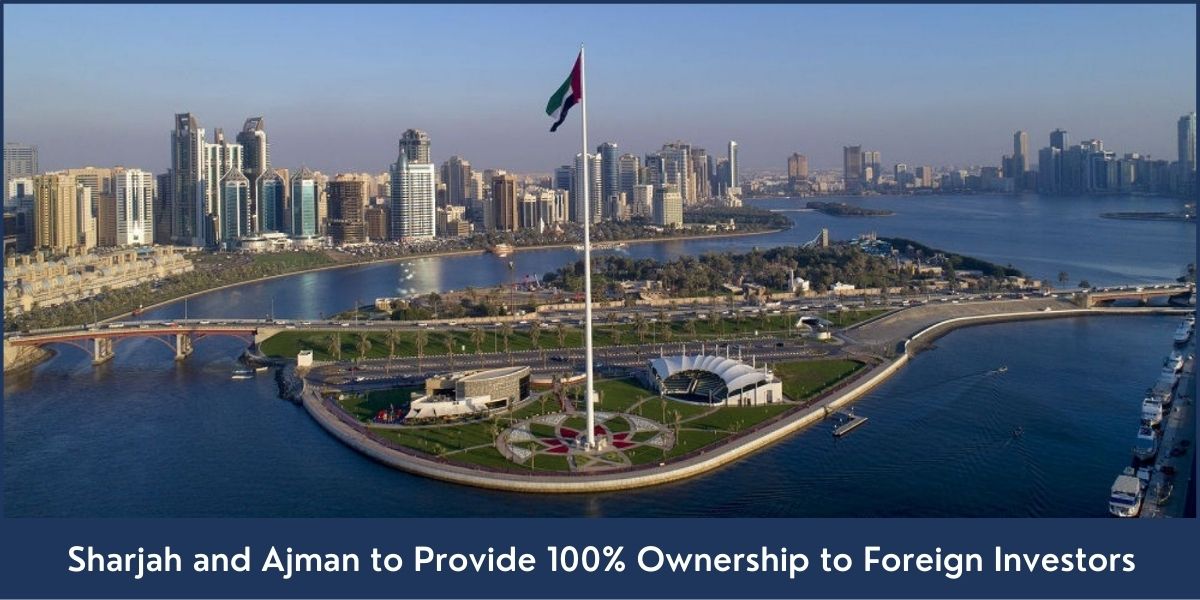The United Arab Emirates (UAE) is stepping into the modern world with flair and breaking the norms, which potentially had the city holding back according to many experts. The latest decision to allow 100 percent ownership to foreign investors has the potential to completely change the game.
This decision is bound to attract millions of dollars in investment which has the potential to be a mutual financially beneficial relationship between the investors and the UAE. It has been reported that there was a huge influx of foreign investment after this news first appeared on major new channels and media outlets.
The full foreign ownership investment is available for more than 1,000 commercial and industrial activities but economic activities which have a strategic impact are excluded from this category. Some categories include general trade, contracting, jewellery, gold, pearls, luxury watches, foods, as well as cars and trucks trading. Furthermore, metals and construction, flooring, building materials, foods, water production and paints sectors are also included in the list of categories.
This amendment in the UAE law is aimed to boost the country’s reputation as an attractive investment haven. In addition to that, this has the potential to further improve UAE’s reputation on the international stage as a leading economic centre that caters to and provides flexibility to all its investors.
The Dubai Media Office revealed in the past week that 59 companies have already pounced at the opportunity to secure 100 percent foreign ownership, which is applicable as of 1st June 2021.
The Sharjah Economic Development Department (SEDD) officially announced that they will be implementing and integrating this methodology in their economic framework. The organization went on record and said:
“This decision includes no requirements such as a specific capital or any additional fees for foreign investors while allowing branches of foreign companies to conduct their business in the Emirate without the need for an agent of a foreign company.” Further, the SEDD also remarked that “These efforts aim to encourage investment in Sharjah, attract more new international investors, and contribute to revitalising the local economy and driving economic development, to enhance the Emirate’s position on the local and global investment map.”
On the other side of the spectrum, the Department of Economic Development in Ajman (DED Ajman) also formally made the announcement and opened free ownership of economic activities in the commercial and industrial sectors to a foreign investor at 100 percent ownership.
To put forth the Ajman point of view, Sheikh Ahmed bin Humaid Al Nuaimi, Representative of the Ruler of Ajman for Administrative and Financial Affairs and Chairman of the Ajman DED said:
“This decision is an important step that translates the new government’s policy and strategic visions by providing a competitive infrastructure for investment. This initiative will contribute to facilitating doing business and increasing the attraction of foreign direct investment to various vital sectors in the emirate of Ajman that will continuously promote such developments and decisions and support economic diversification and sustainable development. We will always strive to provide the appropriate investment environment for investors.”
The Director-General of the Ajman DED, Abdullah Ahmed Al Hamrani, also voiced his opinion regarding this decision and how big of an opportunity this is for everyone to deconstruct the traditional business norms and lay a foundation to the mutual financially beneficial relationship between UAE and the investors.
“In line with its relentless quest to develop and improve the investment environment, the department periodically reviews, in cooperation with its strategic partners, the incentives and facilities granted to investors, and constantly communicate with the business community to provide quality and competitive services,” he further added.
These new strategies are also catering to the economic loss UAE suffered due to the COVID-19 pandemic. These decisions are being taken to close the gap and improve the rate of economic recovery. As an oil and gas producer, the UAE economy has been hit by the coronavirus pandemic and low oil prices, prompting the International Monetary Fund to forecast in October that the Gulf’s second-largest economy could shrink by 6.6% this year.







